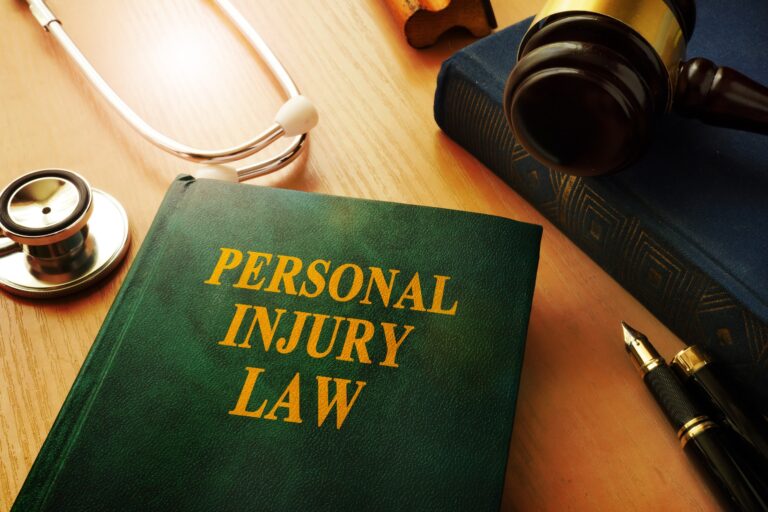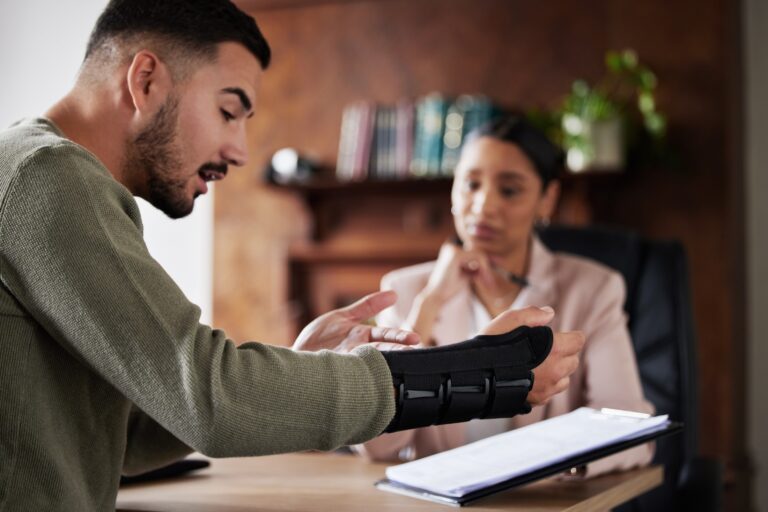Personal Injury for Minors

Pursue a personal injury settlement for minors
Dealing with a child’s injuries after an accident can be emotionally challenging. The financial burden of medical care often compounds these challenges. However, if the accident directly resulted from someone else’s negligence, it may be worth pursuing a personal injury settlement for minors.
Unfortunately, settlement hearings involving minors are far more complex than other types of personal injury cases. You must arm yourself with all the information you can about a parent’s role in minor personal injury settlements and learn what happens when a minor wins a lawsuit. With proper guidance from the Legal Help in Colorado team, the complexities of personal injury settlements for minors become more manageable.
Is a child injury case difference than a regular case?
Minors cannot represent their interests
In child injury cases, a minor cannot represent their interests. Instead, a guardian or parent takes on this responsibility, making decisions on behalf of the child. These decisions extend to agreements with attorneys and settlement negotiations.
Minors cannot sign contracts
It’s critical to realize that minors cannot sign contracts or settlement agreements. Personal injury settlements for minors necessitate the involvement of a parent or guardian in entering into any legal arrangements.
Minor PI settlements are regulated by the court
The court imposes steps ensuring the approval and protection of minor personal injury settlements, safeguarding the child’s best interest. In essence, these cases pivot on the crucial role played by an adult in advocating for the minor’s rights.
What to expect with personal injury settlements for minors
Before you can begin pursuing any compensation for a child’s injuries, you must receive court approval for any personal injury settlements for minors. This crucial step ensures the minor’s interests are protected. To receive court approval, you must formally present the proposed settlement to the court, where the judge evaluates its fairness and adequacy for the minor.
Also, structured settlements are typical in minor personal injury settlements. These settlements, which distribute funds over time, ensure a steady and controlled flow of financial support for the minor’s medical care, education, and other needs over their lifetime.
Minor settlements encompass a thorough legal review, financial considerations, and a commitment to safeguarding their welfare. Navigating these complexities guarantees that the minor’s best interests remain at the forefront while pursuing justice for an unfortunate accident. Awareness of what to expect guarantees that the responsible adult makes proper decisions for the well-being of their child.
Steps to pursuing a personal injury claim for a minor
The process may seem daunting when dealing with a minor’s injury and contemplating filing a claim. However, taking specific steps can significantly contribute to a successful personal injury claim for your minor. We’ve provided proactive steps for filing a personal injury claim for a minor.
Prioritize immediate medical attention after a personal injury involving a minor. Consult with a hospital or family doctor to assess the extent of the child’s injuries. Preserve all medical records and billing as crucial evidence for potential minor personal injury settlements.
You should also notify the relevant authorities and document the accident scene. These fundamental steps set the groundwork for a comprehensive understanding of the injuries sustained.
You need strong evidence to address a claim independently or with legal representation. You must demonstrate that the other person or entity is at fault. Gathering evidence is paramount as it forms the structure of potential personal injury settlements for minors.
Immediately post-accident, document the scene thoroughly, capturing photos and obtaining contact information from witnesses. Preserve any relevant physical evidence, such as damaged items or clothing. You should also maintain all medical records, bills, and receipts, forming a clear foundation for your case.
Gathering such evidence is crucial because it can be persuasive during settlement negotiations. It provides a clear and compelling narrative of the minor’s injuries, contributing significantly to the credibility of your claims. Gathering evidence lays the groundwork for a fair and equitable resolution for the minor.
Meeting with an experienced personal injury lawyer like Legal Help in Colorado is essential for navigating the difficulties.
Our seasoned attorneys will guide you through the legal process, ensuring adherence to specific procedures for minor personal injury settlements. Our knowledge enhances the negotiation power, maximizing the potential for fair compensation. Moreover, we can assist in gathering and presenting compelling evidence crucial for minor personal injury settlements.
The benefits of consulting with an experienced personal injury lawyer extend beyond mere legal representation. Our lawyers significantly contribute to the efficacy and success of your case, securing the best outcome for the minor. We also offer free case consultations before you jump in.
Once armed with evidence and legal representation, initiate negotiations with the at-fault party’s insurance for personal injury settlements for minors. The objective is to secure compensation for medical expenses, future needs, and damages, including pain and suffering.
Negotiating for minors poses challenges due to uncertainties about their future, particularly given their young age. To address this, the assistance of experienced personal injury lawyers becomes crucial. Your lawyer will guide you through minor personal injury settlements, employing their knowledge to anticipate and address potential future needs.
Negotiating with knowledgeable attorneys is vital for attaining a fair and equitable outcome in personal injury settlements for minors.
After negotiations and before a settlement hearing, the last step in personal injury claims for a minor is court approval. The court examines detailed filed information, assessing if the settlement is in the minor’s best interest. This includes specifics about the accident, the injury, and a breakdown of every dollar in the settlement.
The court requires a description of the injury, treatment details, and proof of the child’s condition to approve the settlement. Medical records, including diagnosis and prognosis, and information on the permanency of injuries are also necessary. A full accounting of all settlement dollars, including attorney’s fees and medical expenses, is also mandated.
The court independently reviews attorney fees to ensure fairness and scrutinizes medical expenses for reasonableness. Finally, the court evaluates the minor’s share to guarantee equitable treatment. This meticulous review by the court is a crucial safeguard in personal injury settlements for minors. It ensures transparency and fairness in every distribution from the settlement.
Court requirements for approving a child injury settlement
A parent or guardian must file a comprehensive form when seeking court approval for a minor personal injury settlement. This form provides essential details for the court’s assessment. The following are the critical requirements the court mandates to approve a child injury settlement:
- Accident and Injury Details: Outline the circumstances leading to the child’s injury
- Present Condition Verification: Provide proof of the child’s medical condition
- Medical Records: Include diagnosis, prognosis, and assessment of permanency
- Financial Breakdown: Submit a full accounting of all settlement funds, including fees and costs
- Attorney Fees Approval: The court independently reviews and approves attorney fees Assessment of Medical
- Expenses: Ensure medical expenses are customary, necessary, and reasonable
- Review the settlement amount: Analyze the settlement to guarantee fair treatment for the minor.
The role of parents and guardians
in the settlement process
Parents and guardians play a pivotal role when filing a minor personal injury claim. They initiate the claim, gathering evidence and consulting with an attorney to ensure a comprehensive understanding of the incident. Throughout negotiations and settlement discussions, parents advocate for the child’s best interests, aiming for fair compensation for medical expenses, future needs, and damages.
Parents and guardians are responsible for safeguarding the child’s settlement after settlement. The court mandates that the settlement funds be deposited into a blocked account to prevent unauthorized use. A court order is essential for any deviation from this rule.
Proof of deposit in the blocked account must be submitted to the court, ensuring transparency in financial matters. Parents and guardians oversee the blocked account until the child reaches eighteen. At this age, the child can access the funds directly from the bank without further court order.
Parents must understand the intricacies of structured settlements for minors and adhere to legal guidelines. This knowledge ensures that the child’s financial interests are protected and accessible when the time comes. Understanding what happens when a minor wins a lawsuit is vital to responsibly navigating minor personal injury settlements.

Get professional experience on your side
You don’t have to navigate your minor’s injury alone—Legal Help in Colorado is here to help. We handle a variety of personal injury cases, including car accidents, injuries from defective products, and dog bite injuries. We promise tenacious representation every step of the way and will use our knowledge and experience to maximize your settlement.
If you’re in the midst of a personal injury case for your child, give us a call or fill out our online contact form to get started. We’re ready and armed with everything you need to seek justice.
Knowledgeable. Compassionate. Dedicated.
We are your personal injury team.
Available 24/7 to take your call: (720) 743-3682